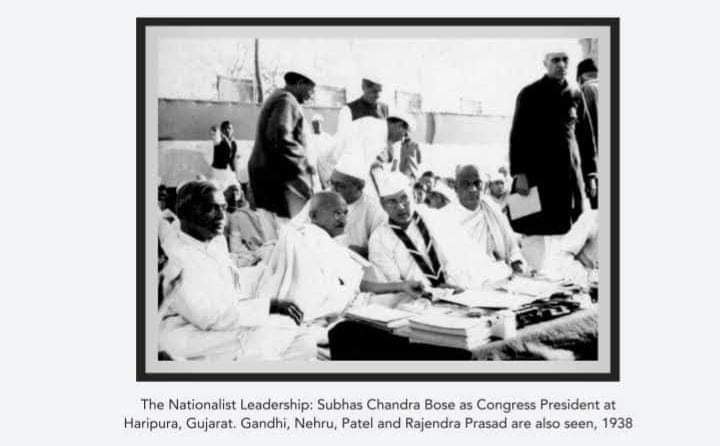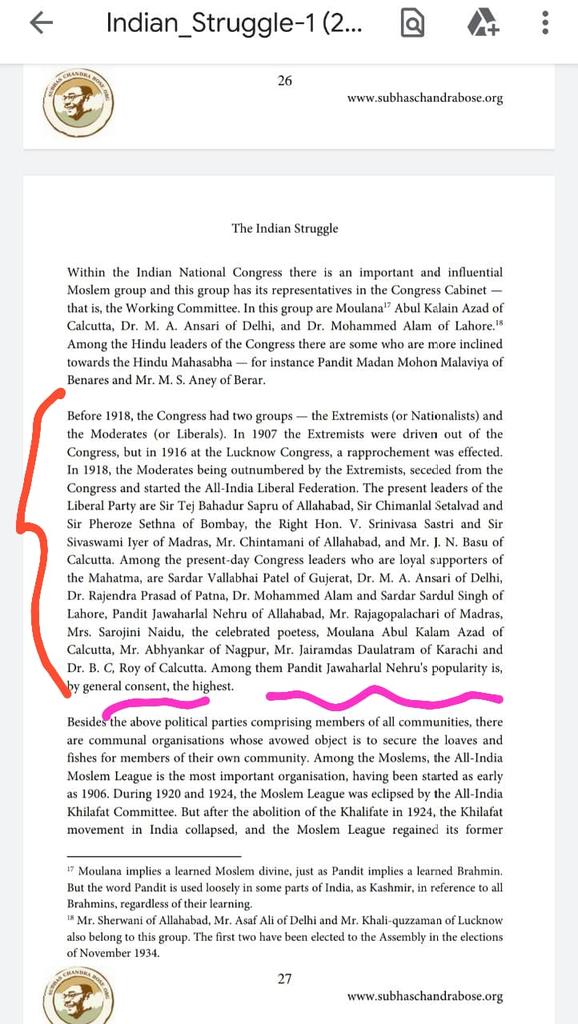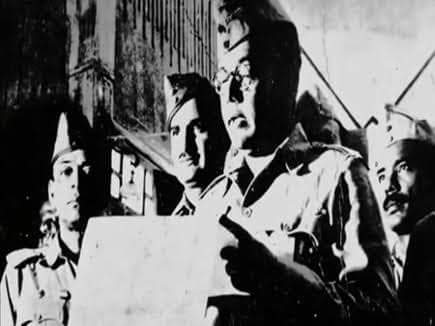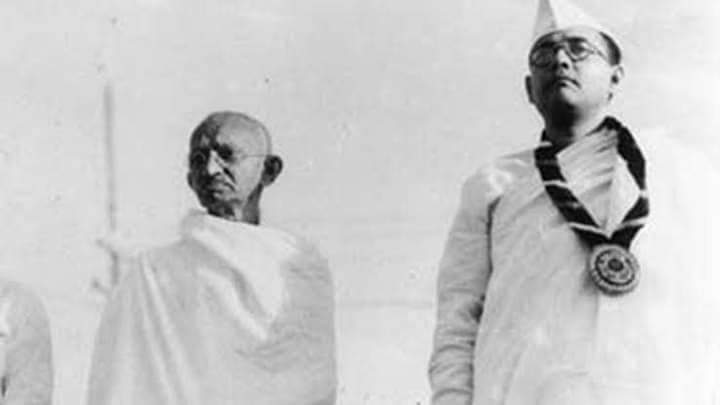
BROTHERS AND SISTERS,
"I have many things to say today. I shall try to deal with as many as I can. Today is Subhas Babu’s birthday. I have told you I cannot remember anyone’s Birthday or death anniversary. Someone reminded me of Subhas Babu’s birthday.
(1/n).
"I have many things to say today. I shall try to deal with as many as I can. Today is Subhas Babu’s birthday. I have told you I cannot remember anyone’s Birthday or death anniversary. Someone reminded me of Subhas Babu’s birthday.
(1/n).

Subhas Babu was a votary of violence while I am a devotee of ahimsa. But what does it matter? Iknow that the most important thing is that we should learn from other people’s virtues. As Tulsidas says:
(2/n).
(2/n).

The Lord has created this world full of lifeless and living things and virtues and vices. The wise like the swan take the milk of virtue and leave out the waste of water.
(3/n).
(3/n).

We should be like the swan and take the milk of virtue. Man has virtues as well as vices. We should emulate him in his virtues and forget his deficiencies. Subhas was a great patriot. He laid down his life for the country.
(4/n).
(4/n).

He was not by nature a fighter but he became commander of an army and took up arms against a great empire. The soldiers of that army included Hindus, Muslims, Parsis and Christians. He never considered himself only a Bengali.
(5/n).
(5/n).

He had no use for parochialism or caste distinctions. In his eyes all were Indians and servants of India. He treated all alike. It never occurred to him that since he was the commander he deserved more and others less.
(6/n).
(6/n).

Let us therefore in remembering Subhas think of his great virtues and purge our hearts of malice. Once a friend who was an eminent advocate asked me to define Hinduism.
(7/n).
(7/n).

I told him I was neither a lawyer like him nor a religious leader and was really unable to define Hinduism, but I would suggest that a Hindu was one who had equal respect for all religions.
(8/n).
(8/n).

Subhas had equal respect for all religions and he easily won every heart. It is good to remember such things on this occasion."___Mahatma Gandhi on January 23,1948.( seven days before his assassination).
Taken from Collected Works of Mahatma Gandhi, Vol 98, p 293, 294.
(n/n).
Taken from Collected Works of Mahatma Gandhi, Vol 98, p 293, 294.
(n/n).

• • •
Missing some Tweet in this thread? You can try to
force a refresh

















